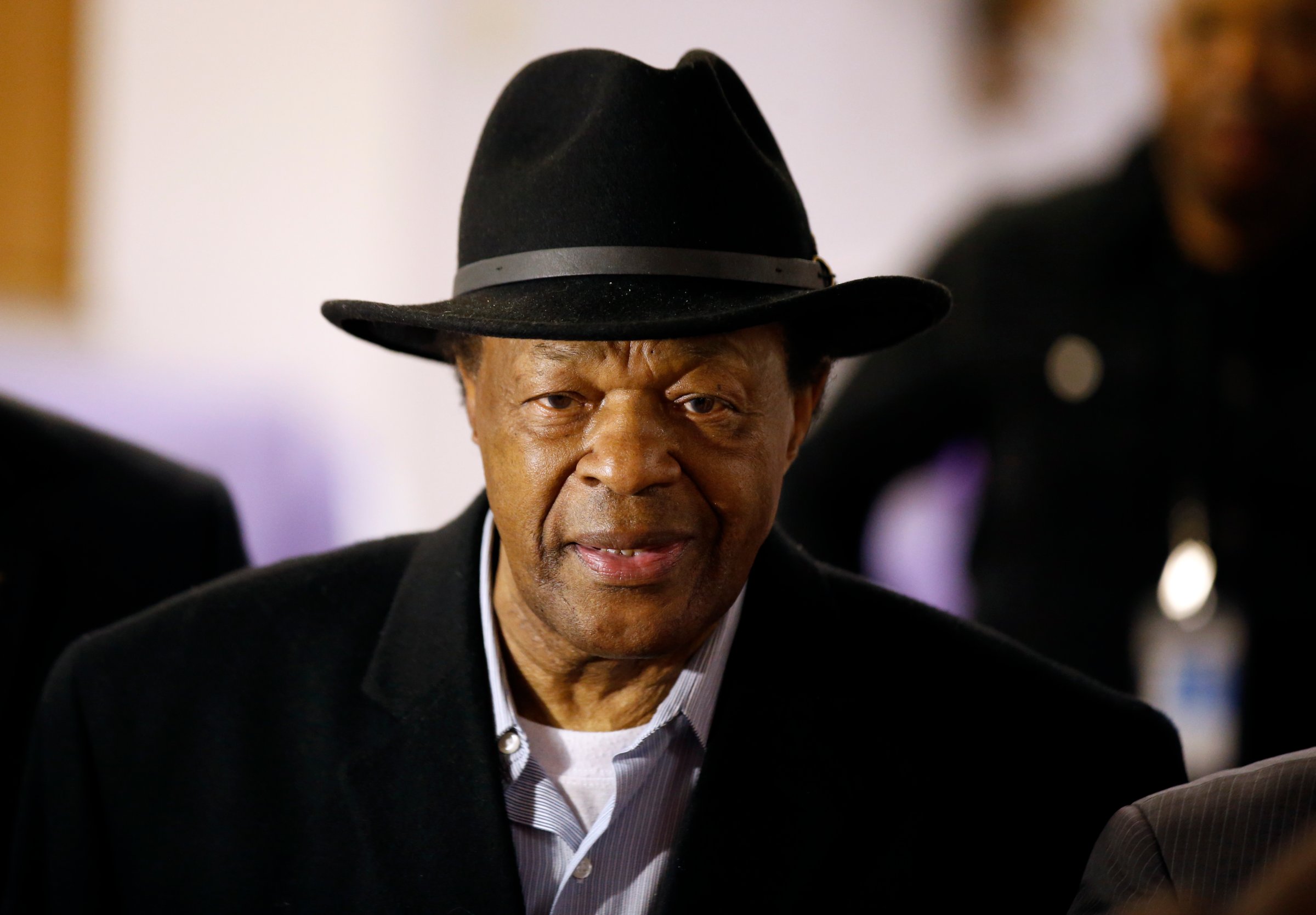
On Friday night at the K Street aqua backlit lounge Look, Marion Barry, the former four-term mayor of Washington, D.C., burst into song.
“They called it stormy Monday, but Tuesday is just as bad,” Barry belt out into a microphone for a crowd of about twenty five reporters, staff and Look employees. “That’s my blues.”
“The eagle flies on Friday—that’s payday baby,” continued Barry in his rendition of B.B King’s Stormy Monday. “Saturday go out to play. Then comes Sunday morning, what do I do? Get down on my knees and pray. Lord have mercy; Lord have mercy on me…If you see my baby, please somebody, send her back home to me.”
Barry, 78, is selling his blues in the new biography Mayor for Life written with novelist Omar Tyree. While the book describes his humble beginnings and role in the civil rights movement, most readers will be intent on reading about his crack-cocaine fueled downfall, which led to his FBI arrest and sentencing at the end of his third term as mayor. Barry, to his credit, does not shy from the subject. (One sample line in the book: “That was my first time ever trying cocaine, and it felt like I had ejaculated.”) But like all autobiographies, Mayor for Life is a subjective account; he blames the FBI sting on racism. “White folks may let you in their country clubs to play golf, invite you out to dinner, take you out to play tennis, but when it comes to dividing up the money, that’s a whole ‘nother story,” Barry writes. “They didn’t want me creating all of these opportunities for black folks.”
“The book is very honest,” said Barry Friday. “It’s the truth—the good, the bad, the ugly. More good than anything else. I wrote this book to tell people who Marion Barry is.”
And if you wanted to get to know Marion Barry, a two-hour dinner wouldn’t be a bad place to start. At Look, Barry directly responded to almost every question the group of journalists asked, from cocaine use to slavery reparations to changing the Redskins name.
“Don’t try it,” said Barry of cocaine. “Don’t try it. If you do try it, you got to stop. Get some help—psychotherapy…I’m just blessed. For the two years that I was out there, I never missed a rent payment.”
“I believe in [slavery] reparations,” said Barry. “The German people got reparations. The Marshall Plan was a form of reparation. … What’s wrong with us? We helped build this country.”
“He ought to wake up in 2014 and change that name,” Barry said of Dan Snyder, the owner of the Washington Redskins.
As the reporters passed a microphone around the tables set up in a large square, and raised their voices to be heard over the loud din of a singles mingle at the nearby bar, Barry would patiently wait, nod his head and interject (When event host Janet Donovan quoted a 1998 Washington Post article—“To understand the District of Columbia, one must understand Marion Barry”—Barry quipped, “That’s right.”), or sing. He deemed Grand Theft Auto “the worst video game in the world” for its cop killing, called on the President to recognize D.C. as a state (What about democracy here?”) and called homelessness the “sin of this nation.”
Barry even reviewed the menu from his perspective as a diabetic. “The worst chemical in the world is sugar, sugar, sugar” he said, before ordering the not too healthy penne with Bolognese. “I got my insulin needle with me.”
But the focus of the dinner was about comebacks. Barry, who currently serves as a member of the District’s City Council, is an expert, accomplishing the stunning feat of winning the 1994 mayoral election after serving a six month federal prison sentence. He spoke of our “society of second chances, of third chances, of fifth chances” and referenced Matthew 18:22, in which Jesus says to forgive up to “seventy times seven” times.
“We all got to regret,” said Barry. “If you live you got to regret. If you live, you’re going to make a mistake. You’ll make a misjudgment about something. I always think of Frank Sinatra. ‘Regrets, I have a few. I did it my way.’ That’s what’s important.”
More Must-Reads From TIME
- The 100 Most Influential People of 2024
- Coco Gauff Is Playing for Herself Now
- Scenes From Pro-Palestinian Encampments Across U.S. Universities
- 6 Compliments That Land Every Time
- If You're Dating Right Now , You're Brave: Column
- The AI That Could Heal a Divided Internet
- Fallout Is a Brilliant Model for the Future of Video Game Adaptations
- Want Weekly Recs on What to Watch, Read, and More? Sign Up for Worth Your Time
Contact us at letters@time.com